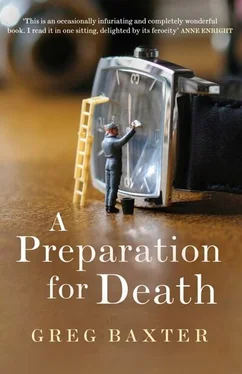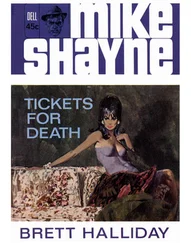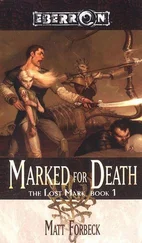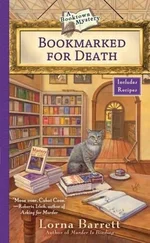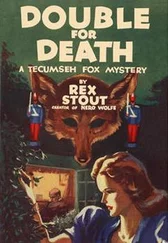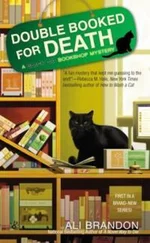I skipped the free lunch, roast chicken — who would I sit with, and what would we talk about? — and made my way through Stephen’s Green. The morning had been bright and warm, but by the time I left the conference the day had come down cold and soapy, and it was beginning to rain. A few black umbrellas emerged from and disappeared into the trees. The rain was falling softly into the treetops and loudly into the little ponds. My bag was heavy. I had crammed a lot of books into it that morning — I never know what mood I will be in — assuming the weather would hold and I could grab a little sunlit patch of grass and read for an hour or two. But I was happier this way. For my first two years in Ireland, the rain depressed me. Now, whenever it is warm and agreeable, I lie around dreaming of grey skies and wind and short days in December.
I stopped in to McDaid’s — a regular spot for me — and took a seat at a stool in the window, where I could watch the rain intensify and bash the little alleyway between the Westbury and Bruxelles. The glass was fogged at the four corners. Nobody knew then that we were headed for the rainiest summer in a hundred years. I ordered a pint of Guinness. I only drink Guinness when I want to avoid becoming unreasonably drunk.
There was one man at the bar, a big black man in a Nike tracksuit and bling sunglasses — surely a Westbury resident — and a white-haired couple at one of the small tables in the very back. The television was showing rugby, a repeat from the southern hemisphere, and only the bartender, who looked much like Anthony Perkins in Psycho , but shorter, with a more pronounced chin, was watching, and only then from time to time. The black man, an American, drank a gin and tonic and said things about the music industry — who was who in New York, LA, etc., and old stories about people he considered legends. The bartender, the only person to whom he could possibly have been speaking, agreed in nods but had nothing to add. Two German girls came in and sat at the short side of the bar, their backs directly to mine, and when the cold blew in the black man said, Merry Christmas, motherfucker! to no one in particular. Outside, tourists in bright jackets and hoods stopped to consider McDaid’s and Bruxelles, wondering if they were restaurants, if they might find some Irish stew and soda bread.
I placed my books on the ledge in front of the window — one was the book Evelyn had brought back from New York, which I always carried with me. I wanted to reread the stories we’d be talking about in class that night. My pint came. It was a cold glass and the head had spilled over the sides, and it was pleasant to behold. I took a sip immediately.
I opened two of the books — Mansfield and Hemingway. I teach ‘The Daughters of the Late Colonel’ and, depending on my mood, any number of Hemingway stories; that evening I’d be teaching ‘A Clean, Well-Lighted Place’. I took my notebook out in order to write a few things I wanted to say about them. But this seemed to desecrate the calm of the moment so I decided to write nothing.
I turned to find the black guy staring at me. He said something like, Shit, how many books are you reading?
I moved so he could see them better.
That’s a lot of motherfucking reading. You teach?
Yeah, I said.
All fucking right, he said — I remember he said that. He went back to his gin and tonic. He had nothing with him. No reading. No phone. He just seemed to want to stir his straw and now and again take a drink, but not get drunk. I waited a moment and went back to my pint.
Resentment, if you let it, will weave itself into your DNA, and replicate. Every cell in your body becomes it. You feel nothing authentically, and, if you are a writer, you produce reactionary trash. You must let go of the desire to bring down the society you loathe. You must learn to discard any hope of making a difference. You must stop asking dumb questions.
I want to think quietly, calmly, spaciously, never to be interrupted, never to have to rise from my chair, to slip easily from one thing to another, without any sense of hostility, or obstacle. [Woolf]
When I think of growing, it is in a lowly way, with a constrained and cowardly growth, strictly for myself. [Montaigne]
What I like about Dudley and some of the others is that they know enough not to want to do a stroke of honest work … Sink or swim is their motto. They look at their fathers and grandfathers, all brilliant successes in the world of American flapdoodle. They prefer to be shit-heels, if they have to be. [Miller]
I had become a resentful and jealous and desperate would-be writer in Louisiana, and I was that same man in Ireland. I woke every morning at dawn and put on three or four layers and a winter hat and bashed revisions into my first book. And when that failed I bashed a second book into existence. No thought I had was quiet. Everything was a military march. I could not imagine a fate of anonymity — life was meaningless without impact. I believed that I could alter society. How pathetic that self seems to me now.
It is enough for me to hear someone talk sincerely about ideals, about the future, about philosophy, to hear him say ‘we’ with a certain inflection of assurance, to hear him invoke ‘others’ and regard himself as their interpreter — for me to consider him my enemy. [Cioran]
Before I found work at the paper, I took on a contract job that was humiliating and paid nothing. I listened to taped speeches and phone conversations and transcribed them. Because I type with four fingers, it took me hours to transcribe a few minutes’ worth of tape. And my work was so mistake-riddled that I was invariably docked twenty per cent of my pay. It was mainly corporate work, and often the voices were inaudible — French accents (it was a French company), bad tapes, words I had never heard of. I was like Akaky Akakievich, just copying . The guy who served as a kind of boss would call me every fifteen minutes asking how I was getting along. I told him I would be going a lot faster if he stopped calling me every fifteen minutes. He would laugh but he would call me fifteen minutes later. Apparently his other transcribers could type. In four months I probably made two hundred euro. I should have quit, but I needed the money — any amount was better than nothing. And I was writing my novel, which was going to be great, and revolutionize fiction, so I figured I had dignity. A man who believes in his own inviolability can withstand any cruelty, every form of humiliation imaginable.
By the time I gave up the desire to write books that would annihilate society — which was nothing more than the desire to write myself back into society — I had almost nothing left of myself. I wasn’t a writer at all, just a slave to my own preoccupation with people who were published.
I got another pint. I felt unusually tipsy and wanted a cigarette. I had set my phone to silent but I could see that the screen was flashing. It was work. I needed to get moving soon.
All the successful journalists I know have one thing in common: they become excited by news, and when there is none of it, they are lost. When they have a story to write, they rush to write it. Their hearts will explode if they don’t. I, on the other hand, feel nothing but monotony. But after seven months of unemployment, you capitulate to monotony. No matter how much you might loathe an honest day’s work, no matter how little you want to be on phones or sitting through press conferences and writing down every infuriating detail of things that do not matter, you want that pay cheque. You want a drink or some new shoes, or some socks without holes in them. A bottle of wine that does not taste like vinegar. A steak you don’t have to stew four hours to make tender. A new winter coat.
Читать дальше
